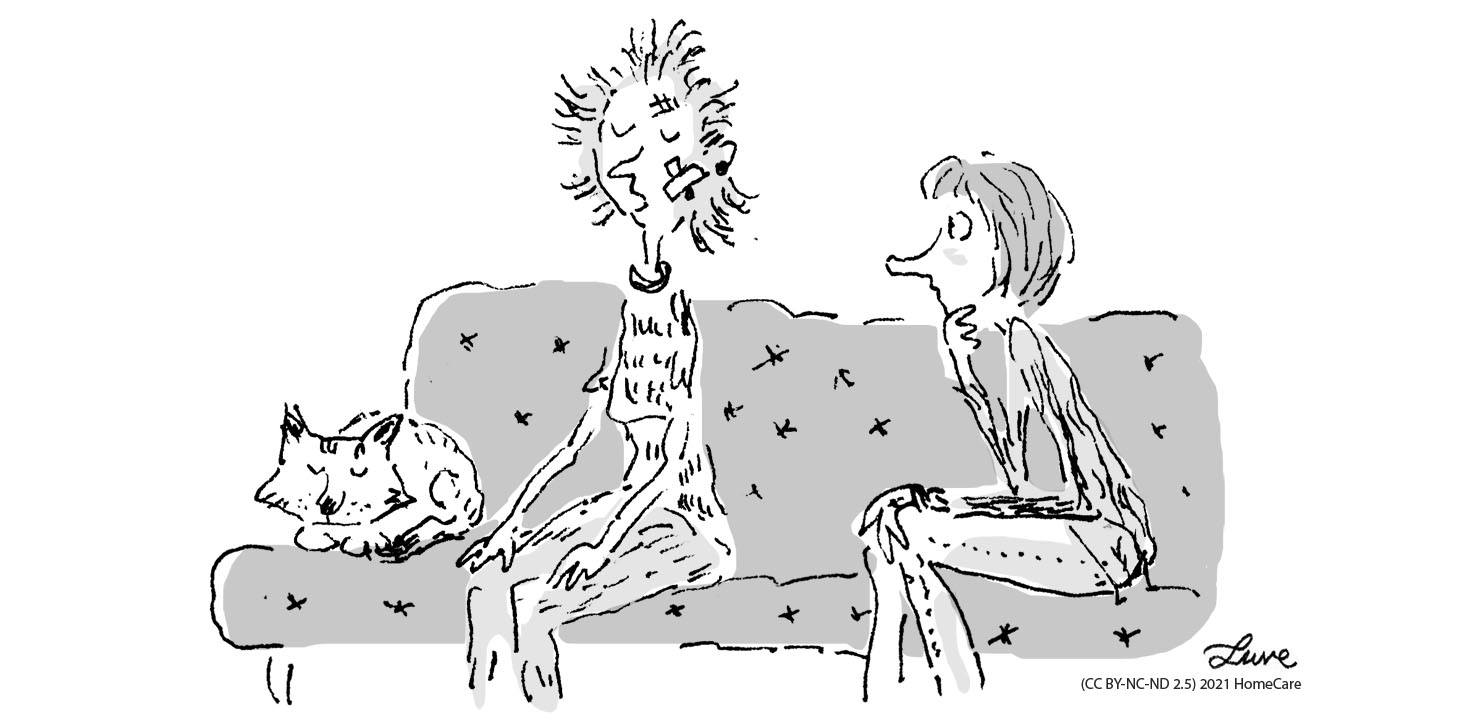
“I’m still learning to read Rocco’s emotions.”
In the caregiving process, those who receive the attention are embedded into a context that produces a difficult and stressful emotional environment not only for them, but also for the family and for the caregiver.
The individual experience of each one is immersed in an emotional swing, ranging from sadness to hope and from anger to gratitude.
In this scenario, intersubjectivity arises and beliefs, prejudices and images about that life experience take on important weight. In the elderly-caregiver relationship, emotions are expressed in a way that create and recreate objective realities and personal meanings. (Arroyo Rueda & Soto Alanís, 2013)
Thus, it is vital for caregivers to understand the feelings and emotions of those who they are taking care for.
Their emotions need to be understood in order to offer them the best possible and individualized attention. It needs to be considered that different pathologies will entail particular emotions.
However, it is true is that there are several emotions that are recurrent among the elderly or dependent people when receiving care and attention from a caregiver. Indeed, according to a study conducted by Arroyo Rueda and Soto Alanís in 2013, there are existential emotions related to the establishment of certain patterns in the caregiver-receiver context. (Arroyo Rueda & Soto Alanís, 2013)
These emotions are the following:
1. Anxiety-Fear
The emergence of this emotion is largely related by the illness and deterioration they experience in their basic functions of daily life. They are anxious to be dependent on others and they fear from their disability being aggravated.
2. Guilt
It is another emotion experienced when they feel they are hindering the personal lives of their caregivers. In addition, they feel that they are not worthy of the care given to them.
3. Shame
Dependent older adults feel ashamed for not being self-sufficient, for having to ask for help to meet most of their basic daily needs.
4. Hope
Even though their physical vulnerability and social isolation due to their illness, the elderly maintain the feeling of hope and faith that things can improve. These feelings are rooted in religious or spiritual beliefs that they have held throughout their lives.
5. Hopelessness
Arises when they feel that the end of their lives is approaching, especially when illness, disability and deterioration are present in this last stage.
6. Sadness and depression
The most frequent and typical emotions of the dependent people, related to their situation, the different losses that they need to overcome at this stage, etc.
7. Gratitude
Feeling gratitude for those who take care for us is a value of many human beings.
8. Compassion
For those who take care of them, because they are aware of the effort their caregivers make.
Back Next
![]()
Emotional Intelligence in Caring for the Elderly:36% complete
